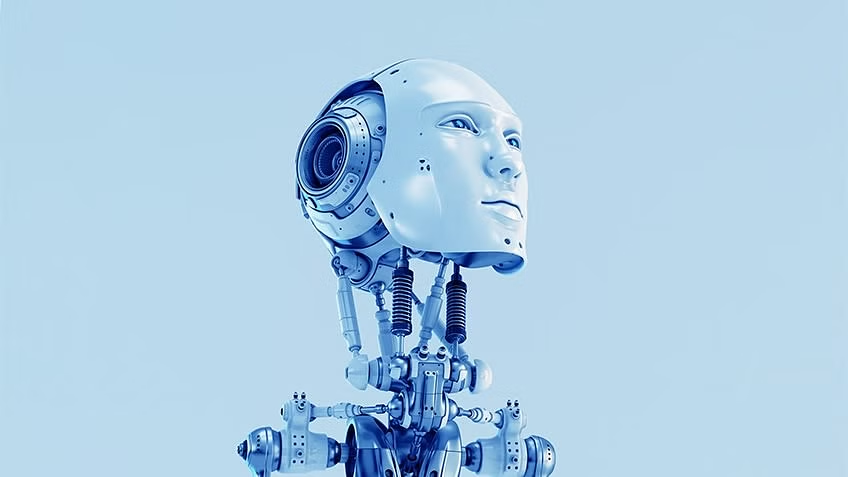In the rapidly evolving world of technology, Artificial Intelligence (AI) has emerged as a transformative force that is shaping the way we live, work, and interact with the world around us. As the digital landscape continues to expand, the potential of AI to revolutionize various industries and improve our daily lives has become increasingly apparent. In this comprehensive article, we will explore the intriguing world of Artificial Intelligence, delving into its definition, its key components, and the remarkable benefits it offers.
Understanding Artificial Intelligence
Artificial Intelligence is a multifaceted field that encompasses the development of computer systems and algorithms capable of performing tasks that traditionally require human intelligence, such as learning, problem-solving, decision-making, and even creative expression. At its core, AI aims to replicate and enhance the cognitive abilities of the human mind. Unlocking new possibilities and transforming the way we approach complex challenges.
Key Components of Artificial Intelligence
Machine Learning:
This is a fundamental aspect of AI that involves the development of algorithms and statistical models that enable computer systems to learn and improve from data without being explicitly programmed. Machine Learning algorithms can identify patterns, make predictions. And adapt to new information, revolutionizing the way we analyze and utilize data.
Natural Language Processing (NLP):
NLP is a subfield of AI that focuses on the interaction between computers and human language. It enables machines to understand, interpret, and generate human language, facilitating seamless communication and interaction between humans and computers.
Computer Vision:
This domain of AI involves the development of algorithms and systems that can interpret and understand digital images and videos. Computer Vision has applications in areas such as facial recognition, object detection, and image classification, among others.
Robotics:
AI has also played a significant role in the advancement of robotics, enabling the development of machines capable of performing complex tasks. Navigating environments, and interacting with humans in a more natural and intuitive manner.
Benefits of Artificial Intelligence
Improved Efficiency and Productivity:
AI can automate repetitive and time-consuming tasks, freeing up human resources to focus on more strategic and creative endeavors. This increased efficiency can lead to significant productivity gains, ultimately benefiting businesses and organizations.
Enhanced Decision-Making:
AI algorithms can analyze vast amounts of data, identify patterns, and make informed decisions with a level of speed and accuracy that often surpasses human capabilities. This can be particularly valuable in industries where data-driven decision-making is crucial, such as finance, healthcare, and supply chain management.
Personalized Experiences:
AI enables the creation of personalized experiences for customers, users, and consumers. By analyzing user preferences, behaviors, and interactions, AI systems can tailor content, recommendations, and services to individual needs. Enhancing customer satisfaction and engagement.
Improved Healthcare:
AI has numerous applications in the healthcare industry, from disease prediction and early detection to drug discovery and personalized treatment plans. AI-powered tools can assist medical professionals in making more accurate diagnoses, optimizing treatment protocols, and improving patient outcomes.
Advancements in Research and Innovation:
AI can accelerate the pace of research and innovation by automating data analysis, generating new hypotheses. And enabling the exploration of complex problems that might be beyond the scope of human capabilities. This can lead to breakthroughs in various fields, from scientific research to technological development.
Enhanced Robotics and Automation:
AI has been instrumental in the advancement of robotics, enabling the creation of intelligent machines that can perform a wide range of tasks with precision, speed, and reliability. From industrial automation to household assistants, AI-powered robotics is transforming how we approach physical work and everyday tasks.
Improved Safety and Security:
AI has applications in areas such as cybersecurity, where it can be used to detect and prevent cyber threats, as well as in transportation, where it can enhance safety through autonomous systems and predictive analytics.
Sustainability and Environmental Conservation:
AI can contribute to sustainable practices by optimizing energy usage, improving resource management, and aiding in the development of renewable energy solutions. Additionally, AI can assist in environmental conservation efforts, such as wildlife monitoring and habitat preservation.
The Future of Artificial Intelligence
As Artificial Intelligence continues to evolve, its impact on our lives is expected to grow exponentially. From automating mundane tasks to unlocking new frontiers in scientific research, the potential of AI is vast and ever-expanding. As we move forward, it is crucial to ensure that the development and deployment of AI systems are guided by ethical principles. Ensuring that the benefits of this transformative technology are equitably distributed and that its risks are mitigated.
Conclusion
Artificial Intelligence is a remarkable technology that is reshaping the world as we know it. By understanding its core components, exploring its diverse applications, and embracing its transformative potential. We can harness the power of AI to address the pressing challenges of our time and unlock a future brimming with possibilities





2 thoughts on “What is Artificial Intelligence and its Benefits?”